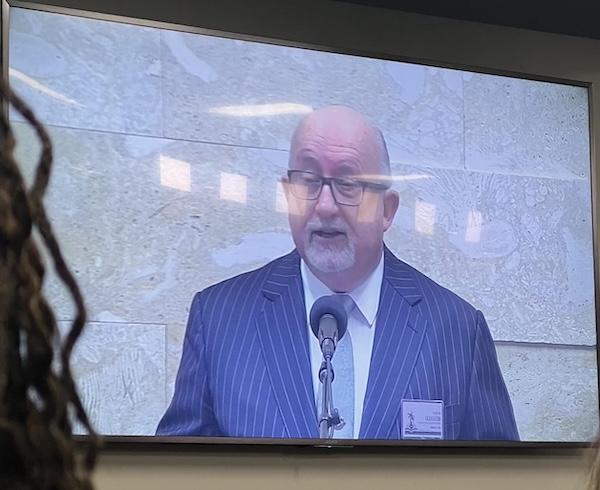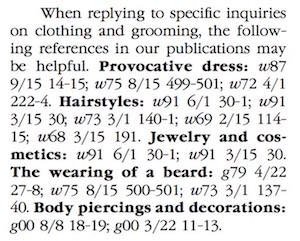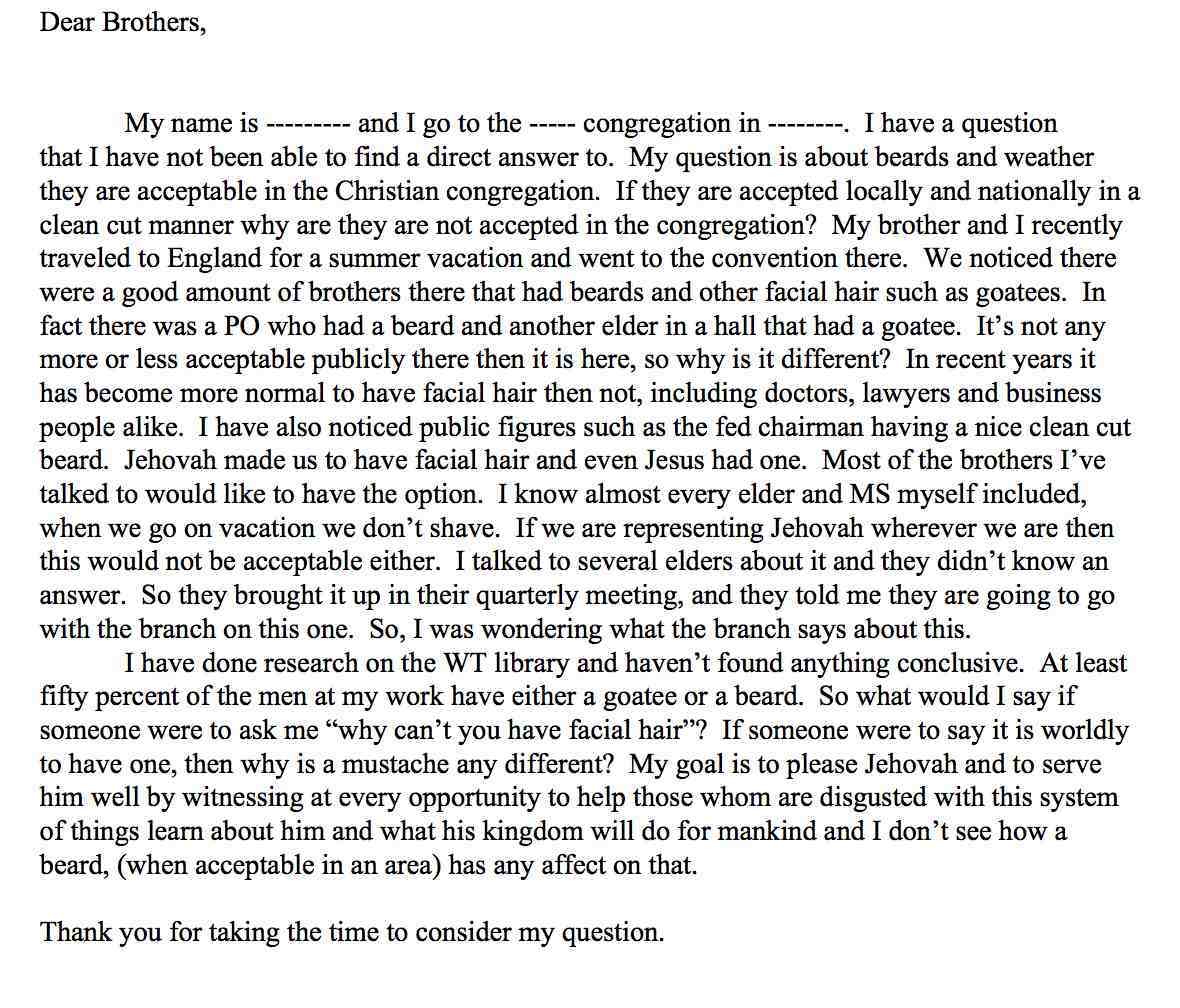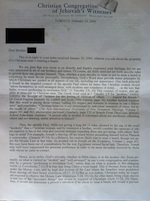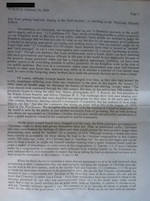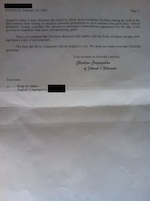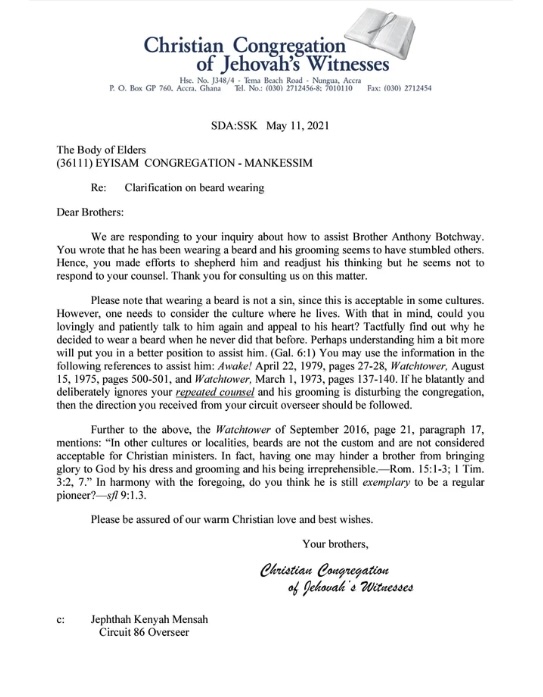home > changed teachings > beards
Jehovah's Witnesses and Beards
For many decades, Jehovah's Witnesses were not to have a beard. Whilst not specifically forbidden, few brothers had one, and privileges were withheld from those that did. In 2023, it was stated that beards were now acceptable.
The announcement that Jehovah's Witnesses could have a beard was released via the December 15, 2023 Governing Body Update #8. The video was played in congregations during the week of 1 January 2024. Update #8 made the following comments.
“The Governing Body does not have an issue with brothers wearing beards. Why not? Because the Scriptures do not condemn the wearing of beards. …
In harmony with Romans 14:4, neither the elders or another Christian should feel compelled to judge a brother who chooses to wear a beard. …
How should we view a brother who decides to grow a beard? Well, we should apply Jesus’ counsel found at John 7:24: “Stop judging by the outward appearance.””
The new direction was accompanied by the letter Announcement December 15, 2023, which included a section for elders that raised concerns about how Jehovah's Witnesses may react to the change.
"After viewing this program, some might have to contend with strong feelings. ...
For example, some might feel as though they have been vindicated, saying, in effect, ‘This is what I’ve been saying for a long time. This proves that I was right all along!’ Others might feel disappointed, saying, in effect, ‘I supported the policy about grooming for all those years. Now I feel let down!’ But is either reaction appropriate? Not really. ... If we have been promoting our own opinion on this subject, contradicting the guidance from the organization, have we been promoting unity? Have we helped the brotherhood to be “completely united . . . in the same line of thought”? Clearly not. Any who have done so need to adjust their thinking and attitude.
On the other hand, if we have loyally supported the organization’s direction over the years, do we have any Scriptural reason to regret our course? Certainly not! Jehovah values our loyal service; he also appreciates our humble willingness to be obedient and submissive to the direction we receive from God’s organization." Announcement December 15, 2023

The letter provides an enlightening view of how the Governing Body control Jehovah's Witnesses. It does not matter if their rules have no Scriptural basis, what is most important is following them and conformity.
On the basis of such reasoning, it was always unscriptural for Watchtower to have restricted brothers from growing breads.
Almost immediately, Governing Body member Geoffrey Jackson grew a beard, as shown in the January 2024 SKE (School for Kingdom Evangelizers) Graduation video.
Following is the JWFacts article on beards that was originally published in 2013. It is interesting that the video contained in the "2023 Governing Body Update #8" closely replicates this JWFacts article, including why beards are acceptable, beardless Jesus, the history of when Jehovah's Witnesses stopped having them, and that beards are now accepted in corporate America. (The paradox here is that Jehovah's Witnesses are supposed to be directed by the Bible and not "the world", but justified their stance on beards by how it is viewed culturally by "the world.") What the video downplays is that it was not the countercultural rebellion of the 1960's that prompted this unscriptural stance against beards, but rather Rutherford's personal feelings many decades earlier.
-------------------------------
It is rare to see one of Jehovah’s Witnesses sporting a beard, and almost unheard of in English speaking countries for a bearded brother to hold a position of responsibility. Yet the standard regarding beards has been rarely discussed in any Watchtower.
Watchtower guidance against beards is limited to vague statements about beards, anecdotes regarding people that removed their beard on conversion, and a lack of bearded Witnesses in Watchtower publications. Rather than enforced by direct decree, it has been adhered to as a result of social identification pressure. This standard extends back to the time of Rutherford.
Illustrations in Watchtower publications never show a beard on modern day Jehovah’s Witnesses. The following picture shows a typical Watchtower congregation of clean-shaven men in ties.

On the other hand, if a worldly person is represented in a negative light, then it is not uncommon for a beard to be present.

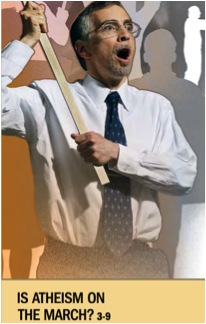

Specific Mention of Beards
One of the few mentions of whether a beard is appropriate for Jehovah's Witnesses appeared subtly in a 1962 Watchtower.
"Likewise it is possible to spend valuable time speculating on matters concerning the future. One might ask, In what year will Armageddon begin? Will the faithful angels eventually receive immortality? Will there be factories and machines in use after Armageddon? Will men wear beards again? … These are typical questions to which Jehovah has not provided answers at this time. Do you think it wise for Christians to take time from more profitable Bible study to speculate on the answers?" Watchtower 1962 Jun 15 p.381
The question of whether men would have beards "again" in the new system indicates that brothers were not bearded in the congregations at this time.
In 1968, it was directed that beards would detract from the Watchtower message.
“In recent years in many lands a beard or long hair on a man attracts immediate notice and may, in the minds of the majority, classify such a person undesirably with extremists or as rebels against society. God's ministers want to avoid making any impression that would take attention away from their ministry or hinder anyone from listening to the truth. They know that people are watching true Christians very critically and that to a great extent they judge the entire congregation and the good news by the minister's appearance as a representative of the congregation.” Watchtower 1968 May 12 p.288
A vague directive to shave appears in the 2001 Theocratic Ministry School Book.
"For men, a neat personal appearance may include being clean-shaven. In areas where mustaches are widely viewed as dignified, any who wear these should keep them neatly trimmed." Benefit From Theocratic Ministry School Education (2001) p.133
For assignments at conventions and assemblies, specific instruction is given against using brothers with beards.
"Dress and Grooming
Those giving talks should wear suits. If your talk calls for an interview or a demonstration, please do not use any brother who wears a beard and make sure your participants are aware of the importance of good grooming and modest dress." 2009 Talk Outline
“False beards should be prepared or obtained. It is not proper for brothers to grow their own beards.” 2002 “Zealous Kingdom Proclaimers” District Convention Drama “Stand Firm in Troublesome Times (Jeremiah)” booklet with the script and guidelines.

More common discussion regarding beards appears in the form of experiences of worldly men removing their beards on conversion. These experiences have appeared regularly over the decades, such as the following examples.
“I shaved off my beard and got a haircut, and Sue bought a few dresses. Four months later we were married, and in April 1976, we were baptized in symbol of our dedication to serve God.” Awake! 2007 Dec 7 p.25
“A Bible study was started with him, and as Bible truth began to affect his heart, the changes he made were visible to all. One of the first evidences of his change was that he cut short his long hair and shaved off his straggly beard.” Watchtower 1998 Jan 1 p.4
“However, after the young man received the book, there was a remarkable transformation in the lad. He shaved off his beard, cut his hair, and stopped using drugs.” Watchtower 1989 Sep 15 p.32
(See also g70 3/8 p.14, w73 3/1 pp.139,140, w74 8/15 p.510, w76 2/15 p.109, w77 8/1 p.462, w77 9/1 pp.533,534, w85 12/1 pp.30,31, w88 12/1 pp.30,31, w89 11/1 p.30, w95 5/1 p.24, w99 1/1 p.4, g99 2/8 p.16, w99 4/1 p.24)
The Correspondence Guidelines (2007), page 20, includes beards under a section on appropriate attire.
It points to the following articles for answers.
"But more helpful than a specific rule in this regard will be application of the principle behind the Biblical statement quoted above: “‘Conscience,’ I say, not your own, but that of the other person.”
The same counsel applies when it comes to wearing beards or certain articles of clothing. In some locations people still view beards as identifying rebellious elements in society." Awake! 1979 Apr 22 pp.27-28
“Extreme hair styles can easily lead one into a trap of the Devil also, and cause others to stumble. For example, a young man in the United States was making fine progress in his study of the Bible, and he was moved to share with an experienced Witness in preaching to others about the good things he was learning from the Bible. From early youth he had let his beard grow, and since some in the business community wore beards, he felt that his wearing one in preaching to others would be acceptable generally. But in speaking to a lady he was unable to do more than introduce himself, when she said: "I'm sorry, young man, I do not want to become involved in student revolt." No amount of explanation after this sufficed to clear up the misimpression. After the conversation ended with the closing of the door, he asked the experienced Witness what had happened. He was invited to consider his appearance in relation to what he claimed to be, a servant of God. Not wanting to be responsible for even one person's being stumbled so as to miss the way to everlasting life, this new Kingdom publisher shaved off his beard. Would you be willing to do the same or to make similar adjustments if your appearance gave the wrong impression in a certain community?” Watchtower 1975 Aug 15 pp.500,501
"Suppose that you, as a man, lived in Israelite times, under the Law, and did not like a beard. Perhaps you liked the way Egyptians looked, clean shaven. What would you do? Would you exercise your personal right to shave? No, for you would not have such a right. You would have to wear a beard, because the Law commanded all males: “You must not cut your sidelocks short around, and you must not destroy the extremity of your beard.”" Watchtower 1973 Mar 1 p.139 - p.140
It is strange how the 1973 Watchtower discussion against beards picks the example of how Israelite men had to have a beard. The article also said that men should not dress to appear like women. What could be more masculine than a beard? Whilst the point is that a beard is unacceptable in modern society, and Jehovah's Witnesses should not insist on their right to have one, the lines of reasoning are more effectively used to encourage men to wear a beard.
The most direct discussion I have found regarding beards is a 3 page Watchtower letter dated February 24, 2009, that was in response to a brother's personal request for information. The brother writes asking what the Branch thinks about beards, since they are common on professional men and there is no direct guidance in Watchtower publications.
What stands out in Watchtower's detailed response is that there is no compelling reasoning given that a beard is wrong. It uses nothing other than the line of reasoning that brothers must be modest, and some people may view a beard as immodest. Yet the message is strong that a beard could cause stumbling and it is a small thing to adhere to the guideline against beards. The response contains the following interesting comment:
"Therefore, it would not determine a person's salvation if he chose to wear a beard, nor would it prevent him from getting baptised, sharing in field ministry, or enrolling in the Theocratic School."
Regarding positions of responsibility, it indicates a beard is not acceptable, yet in a very vague way.
"... if a Christian man is "reaching out" for special privileges and yet desires to wear a beard, he might ask himself whether wearing even a neatly trimmed beard could become a matter of disturbance or controversy in the congregation. (1 Timothy 3:1) If most Christian males in a congregation or community have refrained from wearing beards for the Scriptural reasons outlined above, it is reasonable to expect that those taking the lead as ministerial servants or elders would be exemplary in this respect."
Despite showing that beards were normal attire for Christians in the Bible, and acknowledging that beards are now a common and acceptable fashion in many parts of the world, the letter concludes with the passive aggressive suggestion that "a brother who chooses to maintain a clean-shaven appearance for the sake of the good news manifests that same self-sacrificing spirit [of Timothy]."
The Watchtower also uses illustrations for subliminal influence. Whilst some illustrations of the "New System" include Bible characters with beards, the following examples show newly resurrected ones with beards, but as they learn God's requirements they are later clean shaven.

Good News From God (2012) p.13

Watchtower 2013 Jun 1 p.15
It is unrealistic that in paradise, newly resurrected men would be expected to shave, on the basis that this is what the Governing Body understand as an acceptable standard of fashion for twenty-first century Americans. But on a base level, this picture triggers in the Witness mind that by shaving this man has accepted Bible principles, despite no Bible instruction to shave.
When this jwfacts article was published in 2013, Jehovah's Witnesses had been mostly beardless for almost a century. In May 2016, Watchtower released its September issue, slightly softening its stance by indicating that beards may be acceptable in some cultures.

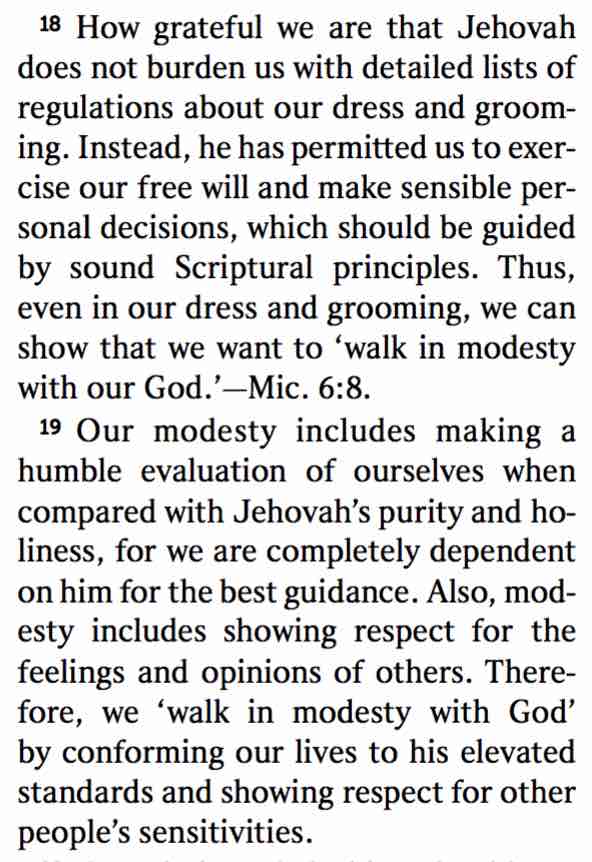
Watchtower 2016 Sep p.21
Between this jwfacts article being published in November 2013 and May 2016, it had been viewed over 44,000 times. I wonder if this was in any way influential on this statement being released.
The September 2016 Watchtower states, "In other cultures and localities, beards are not considered acceptable for Christian ministers." What cultures, by whom, and why? This vagueness still leaves little room for beards, particularly where there are overseers strongly opinionated on the topic.
Showing a continuing lack of comfort with bearded brothers, in a February 2018 talk Governing Body member Lett suggested that we would not want to insist on the right to a beard if it were to stumble someone.
Despite presenting a softening stance, little changed in the congregations.
The No.3 2020 Watchtower cover included a beard on the Twi edition for Ghana, making it more relatable to the Ghana population when preaching. However, the congregations still attempted to stop brothers growing beards.


Despite beards being common in Ghana and even having appeared favourably on a Watchtower cover, in 2021 Elder's were still counselling brothers that wore them. Take for example the following branch letter.
Changing Standard
The Watchtower indication that avoidance of beards is because they are a sign of cultural rebelliousness led me to assume that this stance must have started during the hippie era of the 1960’s.
However, the tide against beards had already started with Rutherford, Watchtower’s second leader. Rutherford’s clean-shaven appearance and imposition upon other brothers was a way to distance the religion from Russell’s leadership. Many did not accept Rutherford as Watchtower's rightful second leader, and Rutherford took insult with brothers sporting beards in imitation of Russell. This is explained in the book 30 Years a Watchtower Slave, recounting an experience from 1925.
“An amusing incident took place at the time of the Judge's visit. The Director of our German branch, as had many before him, had grown a large beard, patterned after Charles T. Russell`s beard. The Judge did not want anything at all to remain which might remind him of Russell - not even the cultivation of a beard. So, sitting at the table for dinner one night within my earshot, the Director asked the Judge for one more large rotary press. The Judge said nothing for a while, merely ate. So, suddenly he looked up, his eyes pinned severely on the Director`s huge beard and said, “I will buy you the press if you take that thing off,” pointing to the beard. It surely shocked the Director`s sensibilities, but he meekly heeded the warning and soon shamefacedly appeared minus the beard.” 30 Years a Watchtower Slave Schnell pp.51-52
The 1974 Watchtower Yearbook verifies Schnell’s account.
"But more equipment was needed. For that reason Brother Balzereit asked Brother Rutherford for permission to buy a rotary press. Brother Rutherford saw the necessity and agreed, but on one condition. He had noticed that over the years Brother Balzereit had grown a beard very similar to the one that had been worn by Brother Russell. His example soon caught on, for there were others who also wanted to look like Brother Russell. This could give rise to a tendency toward creature worship, and Brother Rutherford wanted to prevent this. So during his next visit, within hearing of all the Bible House family, he told Brother Balzereit that he could buy the rotary press but only on the condition that he shave off his beard. Brother Balzereit sadly agreed and afterward went to the barber. During the next few days there were several cases of mistaken identity and some funny situations because of the "stranger" who was sometimes not recognized by his fellow workers." 1974 Yearbook of Jehovah's Witnesses pp.97-98

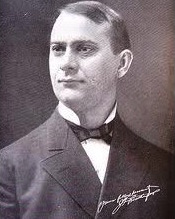
C.T. Russell J.F. Rutherford
The following postcard photo of the Bethel Christmas meal in 1926 shows that by then the Bethel family were all clean shaven.
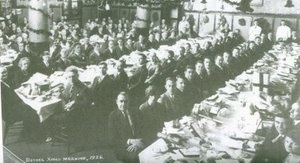
It appears though that some Jehovah’s Witnesses were still sporting beards in the 1940’s, as shown in the following picture.
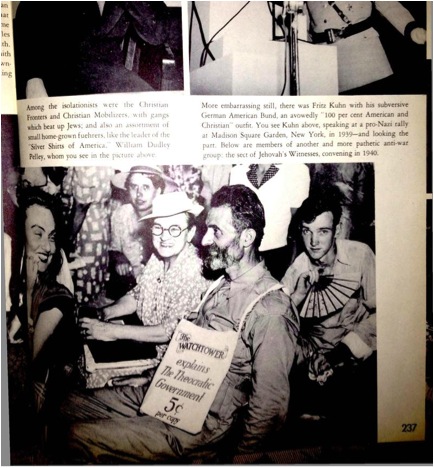
I Remember Distinctly: A Family Album of the American People, 1918-1941 Agnes Rogers (1947)
The move away from beards were also largely influenced by fashion. Beards were common from the 1850's through to the 1920's. The prevalence of shaving aligns with the release of the first disposable safety razor by Gillette in 1903, and then electric razor, first patented in 1930. It was during this period that Watchtower followers also moved to being mostly shaven.
Beards were reintroduced into fashion by counterculture; beatnix in the 1950's and and then hippies in the 1960's. It is understandable that Watchtower leaders during that period were wary of their followers appearing to align with these groups. However, by the 1970's beards were common in the business world as well.
Watchtower relates the move of its followers to being clean-shaven as part of this changing fashion.
“With the fall of the Roman Empire, however, the beard once again prevailed, doing so for 1,000 years until the second half of the 17th century, when shaving became the vogue. The clean-shaven look continued through the 18th century. But then, by the mid-to-late 19th century, the pendulum began to swing the other way. Hence, photographs of C. T. Russell, the first president of the Watch Tower Society, and fellow Christian W. E. Van Amburgh show both men wearing stylish, well-trimmed beards that were dignified and appropriate for their time. In the early part of the 20th century, however, shaving enjoyed a resurgence of popularity that has endured in most countries to our day.” Awake! 2000 Jan 22 p.24
What this article does not cover is that after beards became a common and acceptable part of fashion, the organization continue to condemn bearded brothers, with no support, other than the out-of-date fashion sense of the leadership.
Whilst accurate that popularity of the beard vanes and rises, this reasoning does not justify placing upon it a total taboo, as a beard is perfectly acceptable in corporate Western Society. When the above quoted Awake! was released in 2000, I was dealing with corporate leaders and software professionals in Australia, and it was common for them to have beards. At the time of writing this article in 2013, the global software company I work for has many professional employees with beards. Beards are not a sign of hippies and rebellion, they appear on royalty, politicians, statesmen, international public icons and captains of industry. Yet Jehovah’s Witnesses are still expected to shave, on the baseless grounds of it being a corporate standard, and beards as being rebellious; a left over reminder of the insecurities of Rutherford and the fashion sense of the ageing American Governing Body.
Jesus' Beard
Between 1930 and 1968, Watchtower illustrations went as far as to present Jesus as clean-shaven and with short hair.

Light Book 2 (1930) page 161
In 1954, “Questions From Readers” took two full pages to provide detailed explanation of the historical and Scriptural "evidence" of Jesus beardlessness.
“The traditional picture of Jesus shows him with long hair and beard, but the Watch Tower publications illustrate him as beardless and with short hair. Which is correct? — M.H., United States.
The later Watch Tower publications show Jesus as beardless and with short hair because he is shown that way in representations of him that are older than the traditional effeminate-looking picture.
... Since the Bible does not describe Jesus’ facial appearance or indicate he had a beard of length, we follow the oldest archaeological evidence rather than the later traditional view that makes Jesus appear effeminate and sallow and sanctimonious. Some use Isaiah 50:6 as proof that Jesus had a beard: "I gave my back to the smiters, and my cheeks to them that plucked off the hair: I hid not my face from shame and spitting." This may have been literally fulfilled in a typical way upon Isaiah, foreshadowing the shameful insults and reproaches to be heaped upon the servant class, the primary one of whom is Christ Jesus. Each one of the servant class suffers reproaches, but not necessarily all of the ones here specified. The record shows Jesus was whipped, slapped and spat on, but no mention is made of beard-plucking. If it had happened why would it not have been named along with the other abuses and insults? (Matt. 27:26; Mark 14:65, NW) In fact, the Septuagint rendering of Isaiah 50:6 does not mention the cheeks’ being plucked of hair, but as being slapped instead: "I gave my back to scourges, and my cheeks to blows; and I turned not away my face from the shame of spitting." The record in the Gospels states all this did literally happen to Jesus.” Watchtower 1954 Aug 15 p.511
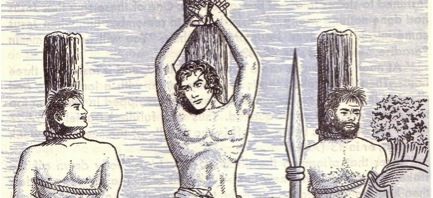
From Paradise Lost to Paradise Regained (1958) p.141
More than a decade would pass before Jesus' beard returned, with the 1968 “Questions from Readers” taking two full pages to explain the certainty of Jesus' beard.
“When Jesus Christ was a man on earth, did he wear a beard? - K.A., U.S.A.
Biblical evidence is the most reliable testimony to be found on this question, and a recent careful review of what it says indicates that Jesus did indeed have a beard.” Watchtower 1968 May 1 p.286
One must wonder why Bible evidence and holy spirit had led the Governing Body to the opposite conclusion when introducing “new light” against Jesus' beard in 1930, not on a whim, but with detailed reasoning, as provided in 1954. The answer is obvious; the Governing Body are not directed by holy spirit, and manipulate Bible interpretation to suit their own agenda.

Common Watchtower portrayal of Jesus since 1968.
Unscriptural
The comings and goings of Jesus' beard reveals how the Watchtower selectively manipulates information to their means. The 1954 “Question From Readers” went into great detail to prove that Jesus did not have a beard, yet in 1968 a similar level of detail was able to prove to Jehovah’s Witnesses that Jesus did have a beard.
Scriptures are forced for meaning. A good example of this is how Watchtower uses Leviticus 19:28 to argue that a tattoo is inappropriate for a Christian, but ignores verse 27, which says it is wrong to shave a beard.
Leviticus 19:27,28 “‘You must not shave the hair on the side of your head or disfigure the edges of your beard. 28 “‘You must not make cuts in your flesh for a dead person, and you must not make tattoo markings on yourselves.
Notice how Watchtower presents that the Mosaic Law's prohibition against tattoos still lends weight for Christians.
“Significantly, the Mosaic Law forbade God’s people to tattoo themselves. Said Leviticus 19:28: “You must not make cuts in your flesh for a deceased soul, and you must not put tattoo marking upon yourselves. I am Jehovah.” ... While Christians today are not under the Law of Moses, the prohibition it laid on tattooing is sobering.” Awake! 2003 Sep 22 p.26
Whilst claiming Leviticus 19:28 to be significant when Christians decide against getting tattoos, verse 27 is treated as irrelevant when Watchtower directs followers to cut their beards.
Watchtower's requirement to shave goes against their usual line of reasoning behind other doctrine. If they followed the reasoning used for why Jehovah's Witnesses are not allowed to celebrate birthdays, shaving would be forbidden, on the following basis:
- Men naturally grow beards, being the design of God.
- The Bible provides the example of Israelite and Christian men with beards, as a guide for us to follow today.
- The Mosaic Law forbade people from shaving (Leviticus 19:27), highlighting God’s feelings against men being clean-shaven.
- Shaving is effeminate and a homosexually inspired, androgynous fashion.
- Shaving has pagan roots. It was likely first practiced by Egyptian priests, and later promoted by Alexander the Great. (See wikipedia.org/wiki/Shaving) During Christian times, Christians wore beards whilst the pagan Romans, such as Pontius Pilate who authorized the impalement of Jesus, were clean-shaven. (w05 9/15 p.10)
Moustaches
Moustaches are acceptable on a Witness brother, and Watchtower publications contain illustrations of brothers in good standing with moustaches.

Image from Watchtower 2012 feb 1 p.10
Samuel F. Herd became a member of the Governing Body in 1999, and sports a moustache.
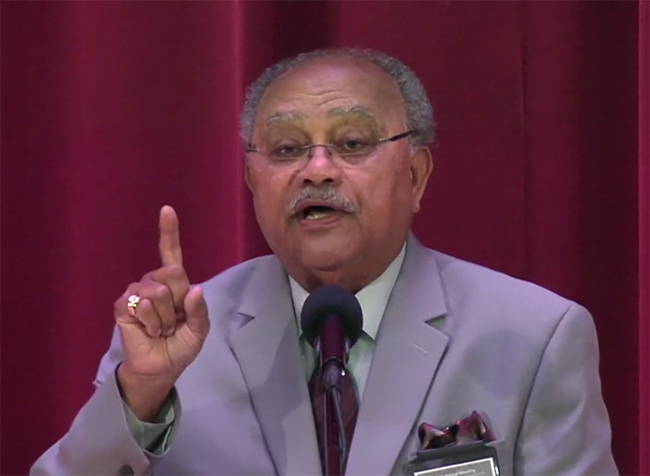
Experiences
Experience from UK
"I grew a beard while an elder in the United Kingdom, conscientiously, having scoured the Watchtower library for every reference to beards, moustaches, facial hair, and grooming. I was promptly told that we don't have beards. I explained that I'd made a conscientious decision and that I was sorry you're stumbled brother but I couldn't find anything in the Watchtower or the Bible that said I couldn't, apart from the clearly hippie-inspired article which was easily dismissed.
I was told that if I insisted on keeping it they'd have to ring ahead to the next three congregations I was giving public talks at to see if it was an issue with them, and if it was then I wouldn't be able to go. Two of the three didn't have a problem with it, but one did. It was made clear to me that I was creating an issue regarding not valuing privileges if I obstinately stuck to my hairy principle. So I capitulated.
My question would be, "where are elders told to do this? To ring ahead to congregations where public talks are to be given? Because in my ten years as an elder I wasn't made aware of this directive, and I never read it in the elders letters or the elders book."
Experience regarding Convention assignments - Dec 2017
"I got baptized as a teenager and never really questioned what I was being taught. But, due to skin and nerve problems, shaving is difficult for me, so when I was 21 I grew a beard. And now, nearly 20 years later, I still have it.
Some Witnesses have obviously given me a really hard time about having a beard, but overall, most in my congregation don't say anything about it anymore because I've had it so long and they are used to it. As far as responsibilities in the congregation go, I generally don't have any, but occasionally I am given something to do, usually for a brief period of time before its taken away again. That's always bothered me, but I didn't blame the organization for any of it because I thought it was just the fault of overly judgmental individuals. That is, until this last summer.
At the regional convention, my wife and I were originally asked to help with cleaning for an area that the congregation was assigned. We agreed to help. Cleaning is something that has never been restricted for me, so I didn't think it would be this time. But I was wrong. About a week before the convention, I was told that I wouldn't be allowed to help clean after all. When I asked about it, I eventually found out after talking to several brothers, that there was a letter from the branch about it. I was told that the letter didn't go to the congregations, but to the convention committee and I was told that it stated that no brother with a beard is allowed to help out in any department in any capacity before during or after the convention. I was specifically told that there is no medical exception to this."
Excessive Control
Excessive behavioural control is an indication of a totalitarian regime, and common amongst religions using persuasive coercion.
I have read experiences of brothers being marked for refusing to shave their beard, and in one of my congregations a brother in his fifties was told he would not be made an elder for as long as he refused to shave his beard. I have known a very small number of Jehovah’s Witnesses who had beards, such as one friend who claimed he could not shave due to a skin problem, but in Australia I never met an elder or pioneer with a beard.
Throughout the entire history of the Bible, God's followers wore beards. Jesus would have had a beard, as did Watchtower founder, Charles Russell. It is remarkable Watchtower feels justified to shirk Bible examples when imposing such rigid control over its member's choice of fashion, and that congregations of beardless men are so universal amongst Jehovah’s Witnesses, simply through subtle Watchtower suggestion. This exemplifies the level of peer pressure Witnesses undergo to conform.
This excessive control that goes beyond, or even against, Biblical examples, brings to mind several Scriptures.
1 Corinthians 4:6,7 “Do not go beyond the things that are written,” in order that YOU may not be puffed up individually in favour of the one against the other. For who makes you to differ from another?”
Luke 22:25,26 “But he said to them: “The kings of the nations lord it over them, and those having authority over them are called Benefactors. YOU, though, are not to be that way.”
Matthew 15:3-9 “In reply he said to them: “Why is it YOU also overstep the commandment of God because of YOUR tradition? ... And so YOU have made the word of God invalid because of YOUR tradition. YOU hypocrites, Isaiah aptly prophesied about YOU, when he said, ‘This people honours me with their lips, yet their heart is far removed from me. It is in vain that they keep worshiping me, because they teach commands of men as doctrines.’”
Further Reading
Beards a Harmless Fashion - A clever satire showing how Watchtower could introduce "new light" that brothers should grow beards.
Clothing & Jehovah's Witnesses
Written November 2013, latest update August 2024.
![]() Paul Grundy 2005 - 2025
Paul Grundy 2005 - 2025

